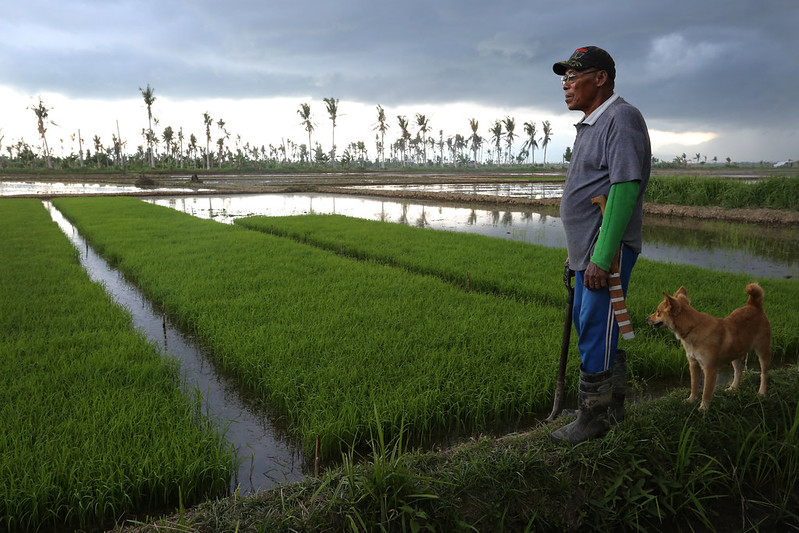
MANILA, November 09, 2022 – Climate change is exacting a heavy toll on Filipinos' lives, properties, and livelihoods, and left unaddressed, could hamper the country's ambition of becoming an upper middle-income country by 2040. However, the Philippines has many of the tools and instruments required to reduce damages substantially, according to the World Bank Group's Country Climate and Development Report (CCDR) for the Philippines, released today.
With 50 percent of its 111 million population living in urban areas, and many cities in coastal areas, the Philippines is vulnerable to sea level rise. Changes due to the variability and intensity of rainfall in the country and increased temperatures will affect food security and the safety of the population.
Multiple indices rank the Philippines as one of the countries most affected by extreme climate events. The country has experienced highly destructive typhoons almost annually for the past 10 years. Annual losses from typhoons have been estimated at 1.2 percent of GDP.
Climate action in the Philippines must address both extreme and slow-onset events. Adaptation and mitigation actions, some of which are already underway in the country, would reduce vulnerability and future losses if fully implemented.
"Climate impacts threaten to significantly lower the country's GDP and the well-being of Filipinos by 2040. However, policy actions and investments – principally to protect valuable infrastructure from typhoons and to make agriculture more resilient through climate-smart measures -- could reduce these negative climate impacts by two-thirds," said World Bank Vice President for East Asia and Pacific, Manuela V. Ferro.
The private sector has a crucial role to play in accelerating the adoption of green technologies and ramping up climate finance by working with local financial institutions and regulators.
"The investments needed to undertake these actions are substantial, but not out of reach," said IFC Acting Vice President for Asia and the Pacific, John Gandolfo. "The business leaders and bankers who embrace climate as a business opportunity and offer these low-carbon technologies, goods and services will be the front runners of our future."
The report also undertakes an in-depth analysis of challenges and opportunities for climate-related actions in agriculture, water, energy, and transport. Among the recommendations are:
- Avoiding new construction in flood-prone areas.
- Improving water storage to reduce the risk of damaging floods and droughts. This will also increase water availability.
- Extending irrigation in rainfed areas and promoting climate-smart agriculture practices such as Alternate Wetting and Drying (AWD).
- Making social protection programs adaptive and scalable to respond to climate shocks.
- Removing obstacles that private actors face in scaling investments in renewable energy.
- Ensuring new buildings are energy efficient and climate resilient.
Many climate actions will make the Philippines more resilient while also contributing to mitigating climate change.
"The Philippines would benefit from an energy transition towards more renewable energy. Accelerated decarbonization would reduce electricity costs by about 20 percent below current levels which is good for the country's competitiveness and would also dramatically reduce air pollution," said Ferro.
Even with vigorous adaptation efforts, climate change will affect many people. Some climate actions may also have adverse effects on particular groups, such as workers displaced by the move away from high-emission activities. The report recommends that the existing social protection system in the country be strengthened and scaled up to provide support to affected sectors and groups.
The World Bank Group's Country Climate and Development Reports (CCDRs) are new core diagnostic reports that integrate climate change and development considerations. They will help countries prioritize the most impactful actions that can reduce greenhouse gas (GHG) emissions and boost adaptation, while delivering on broader development goals. CCDRs build on data and rigorous research and identify main pathways to reduce GHG emissions and climate vulnerabilities, including the costs and challenges as well as benefits and opportunities from doing so. The reports suggest concrete, priority actions to support the low-carbon, resilient transition. As public documents, CCDRs aim to inform governments, citizens, the private sector and development partners and enable engagements with the development and climate agenda. CCDRs will feed into other core Bank Group diagnostics, country engagements and operations, and help attract funding and direct financing for high-impact climate action.
Contacts
In Washington: Kym Smithies, ksmithies@worldbank.org
In Manila: David Llorito, dllorito@worldbank.org
Stay Informed
Sign up to have customizable news & updates sent to you.